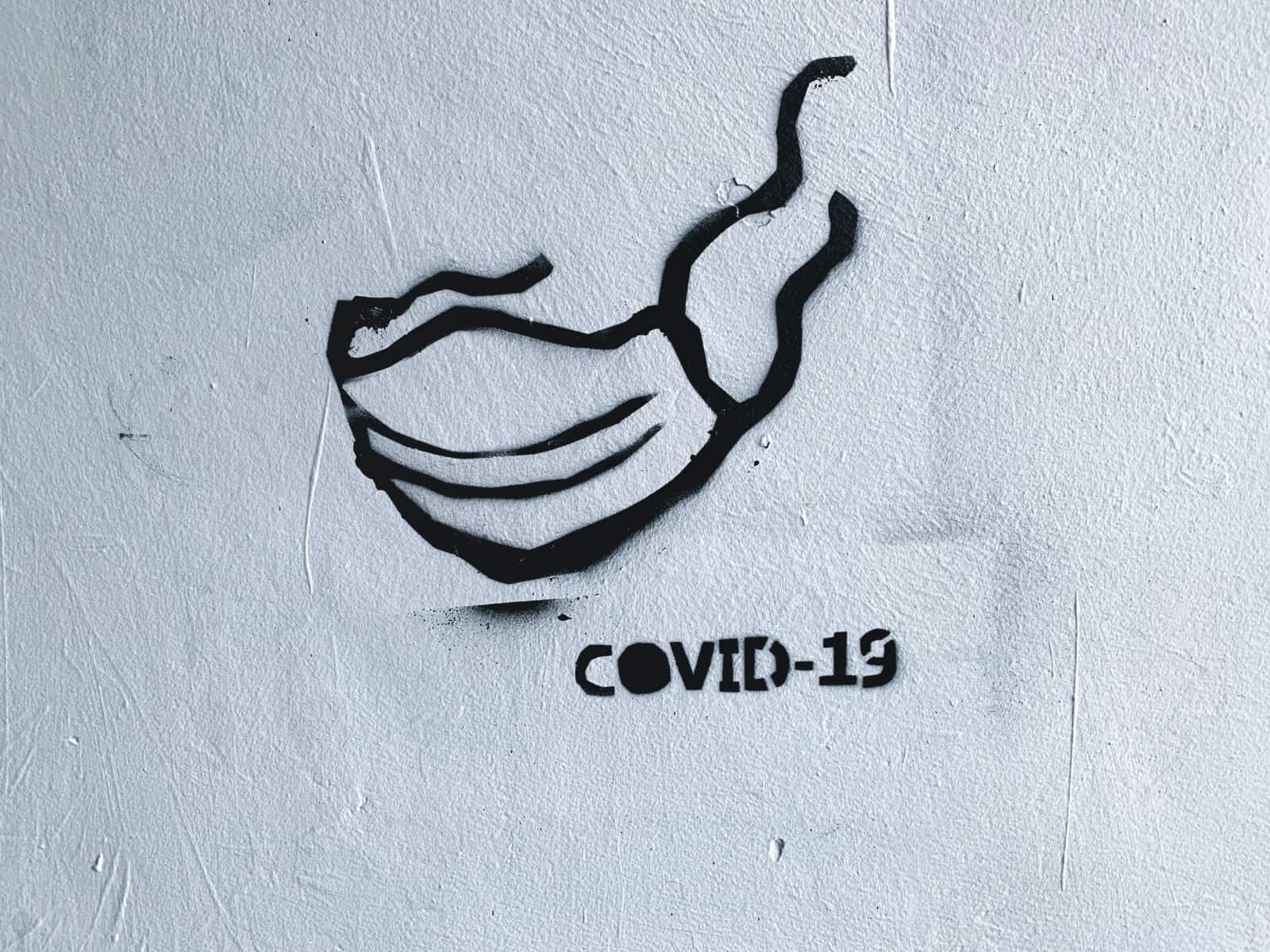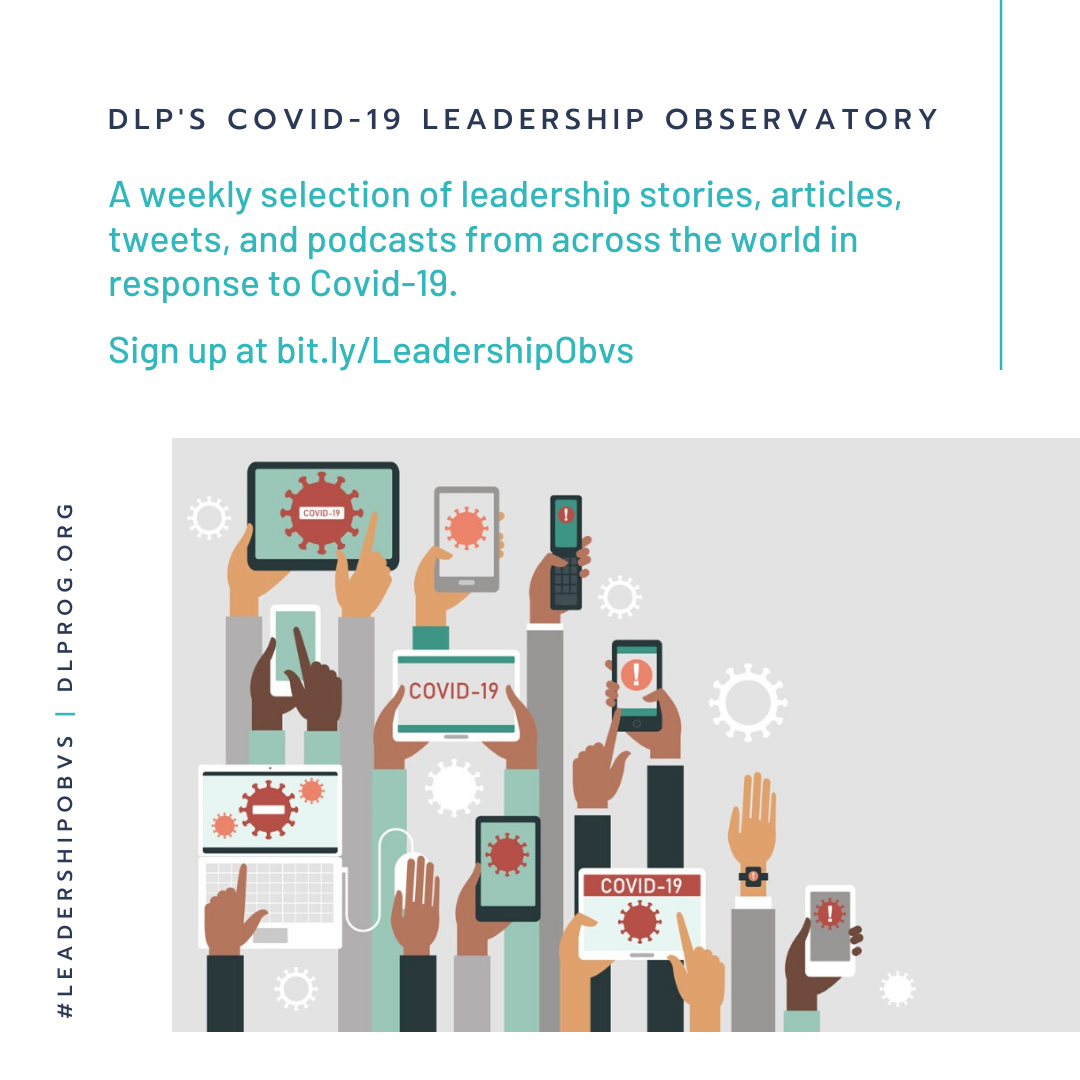During the Covid-19 pandemic, DLP remains committed to supporting leadership, wherever it may be, by helping the flow of knowledge and experience between practitioners, policymakers and researchers. DLP’s weekly #LeadershipObvs collects and summarises all of the leadership focused resources that we have found most useful for understanding developmental leadership during the crisis – whether they be reports, articles, tweets, videos, podcasts, blogs or other.
Countries in Asia and the Pacific continue to adjust to conflicting priorities between internal COVID-19 prevention strategies and the management of their global relationships. Leadership is once again in the spotlight and evaluated by constituents, international partners, and other leaders. This Leadership Observatory draws together debates on women’s leadership, leadership skills and qualities, the good and bad of leadership, and the effectiveness of local responses to COVID-19.
Doug Reeler, Desiree Paulsen, Meg Otieno, Bhavika Patel, and Monica Maassen, ‘Leadership in Times of COVID-19: Essential Qualities, Skills, and Practices’ Tamarind Trees Associates and Oxfam International Culture Team, April 2020.
Reeler, Paulsen, Otieno, Patel, and Maassen, evaluate the options available to leaders during the crisis. They argue the need for more significant facilitative leadership, authenticity, listening, positivity, two-way feedback, and empathy and connection during a crisis. This summary paper provides straightforward guidance for leaders who want to lead effectively when faced with important decisions today and in the future – concluding with a set of handy action learning questions that reinforce the ‘action, reflection, learning, and planning’ cycle.
#LeadershipObvs in a nutshell: Effective crisis leadership should be facilitative and requires regular reflection and planning.
Lawrence Hamilton, ‘What sets good and bad leaders apart in the coronavirus era’, The Conversation, 7 June 2020.
Hamilton evaluates various approaches to leadership during COVID-19, specifically in Brazil, the USA, Korea, the UK, New Zealand, and South Korea. Leaders who empathise with their followership and gather clear-eyed knowledge of their countries particular circumstances generally perform better. Most effective leadership strategies across the world have ‘followed the science’ throughout the pandemic. Hamilton concludes by encouraging political leaders to consider the future health implications of COVID-19 and for constituents to keep leaders with exclusive social and economic interests out of political power.
#LeadershipObvs in a nutshell: We need politics that allows us to express and assess our needs, and determine who is best placed to represent us.
Rachel Clissold, Karen McNamara, and Ross Westoby, ‘Women as recovery enablers: listening to ni-Vanuatu market vendors’, Devpolicy, 2 June 2020.
Drawing on the stories of 53 female market vendors, Clissold, McNamara, and Westoby argue the need for women to be on the frontline during a crisis, but not without significant changes. Their focus-group research in Vanuatu evaluates the disproportionate impact of disasters on women. The blog looks from the perspective of women as leading forces in innovation, collective action, and entrepreneurs.
#LeadershipObvs in a nutshell: Women leaders should receive support to improve their wellbeing, agency, and livelihoods as they are central to disaster recovery efforts.
Mandakini D.Surie, ‘India’s COVID diplomacy’, Devpolicy, 3 June 2020.
India has offered extensive support to its neighbours during the COVID-19 crisis, including countries in the Indo-Pacific region. Lead by the principle “the world is one family”, India has made financial contributions to relief efforts, dispatched teams of doctors to Nepal, and supplied essential food grains to Afghanistan. As India establishes itself with bigger soft power ambitions, D.Surie argues that ‘local is vocal’ as India’s Prime Minister calls for increased local procurement to boost the local economy. Policymakers will need to recognise that domestic policies have a direct bearing on India’s global reputation and image.
#LeadershipObvs in a nutshell: India has established itself as a trusted, neutral, and credible development partner during the COVID-19 pandemic.
Kaymarlin Govender, Ayesha BM Kharsany, Gavin George, and Sean Beckett, ‘South Africa must adopt a localised response to COVID-19. What it would look like’, The Conversation, 8 June 2020.
This blog shares five key ingredients for an effective localised COVID-19 response in South Africa: screening and testing; tracing; identify high risk transmission sites; seriological testing; develop local cycles of lockdown and easing. The authors propose a blueprint for the country’s approach to managing the coronavirus. By specifically exploring health leadership, the authors also call for increased testing and adaptation of existing health provision to accommodate for COVID-19. Local leaders are encouraged to take a community-based approach to manage the spread of coronavirus.
#LeadershipObvs in a nutshell: Local responses to coronavirus should promote social capital, trust, and local leadership to enable behavioural changes that protect health.
Sign up to receive the #LeadershipObvs directly to your inbox
A full list of leadership resources
Other resources are available on Twitter using #LeadershipObvs @DLProg











